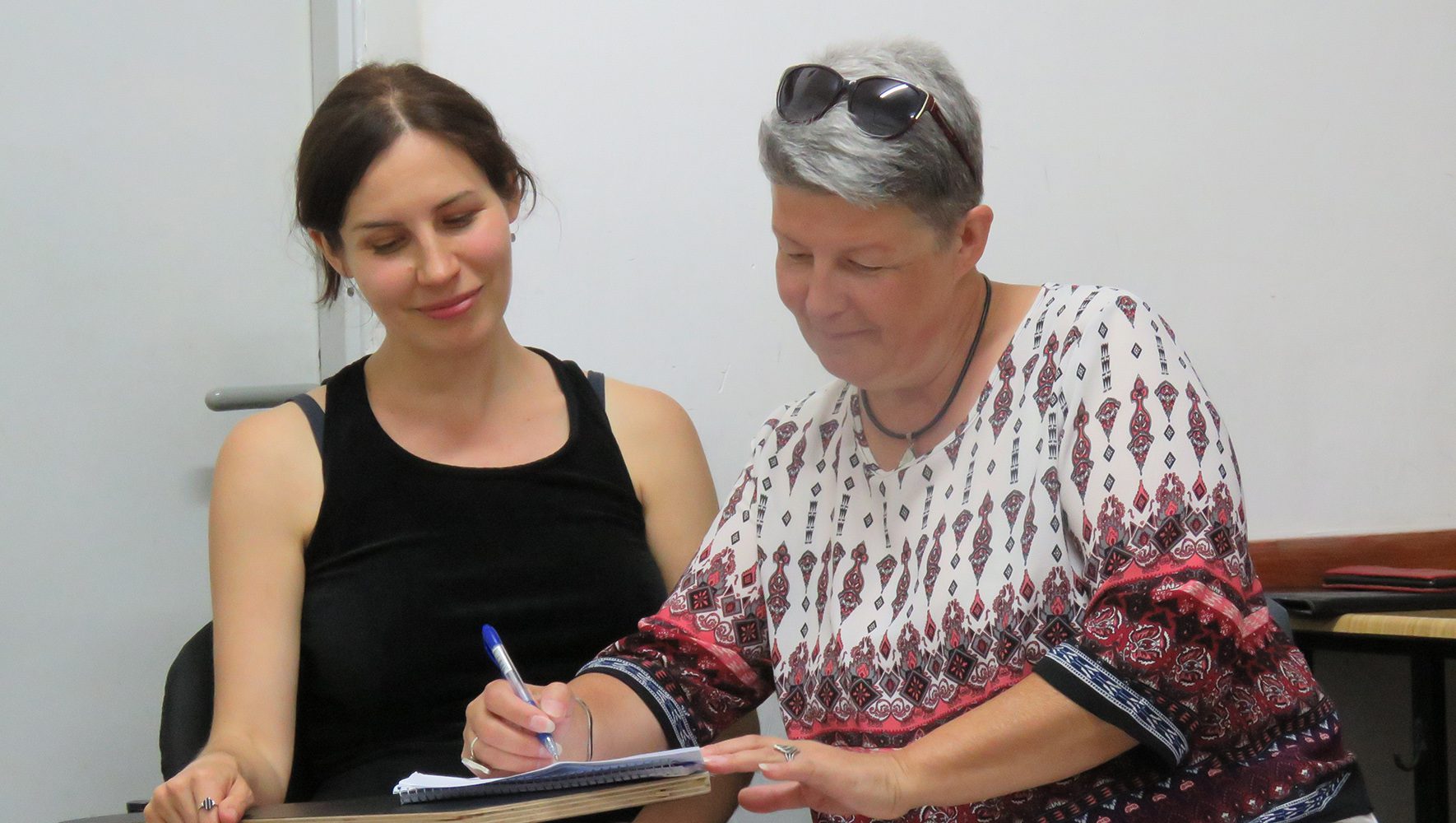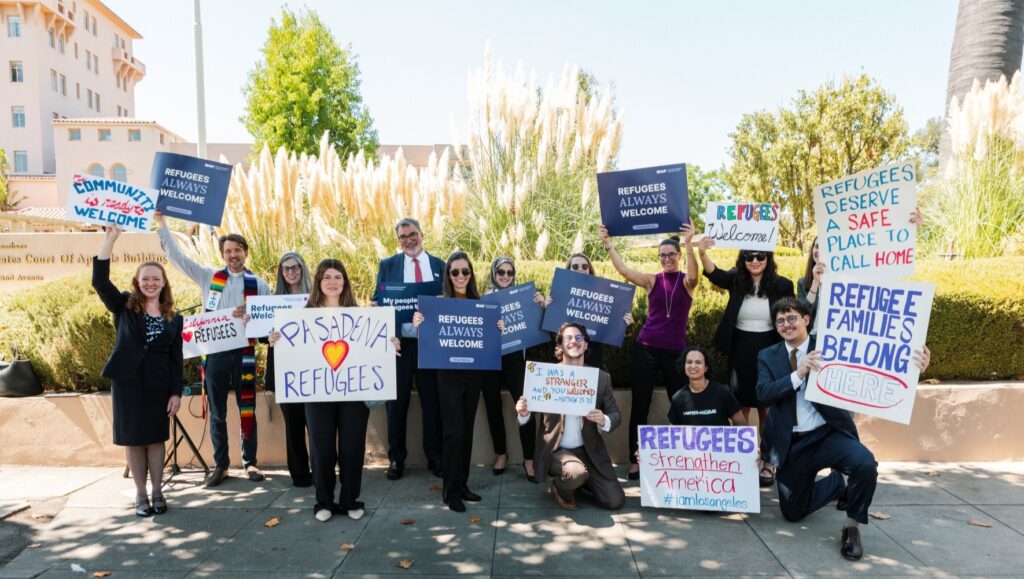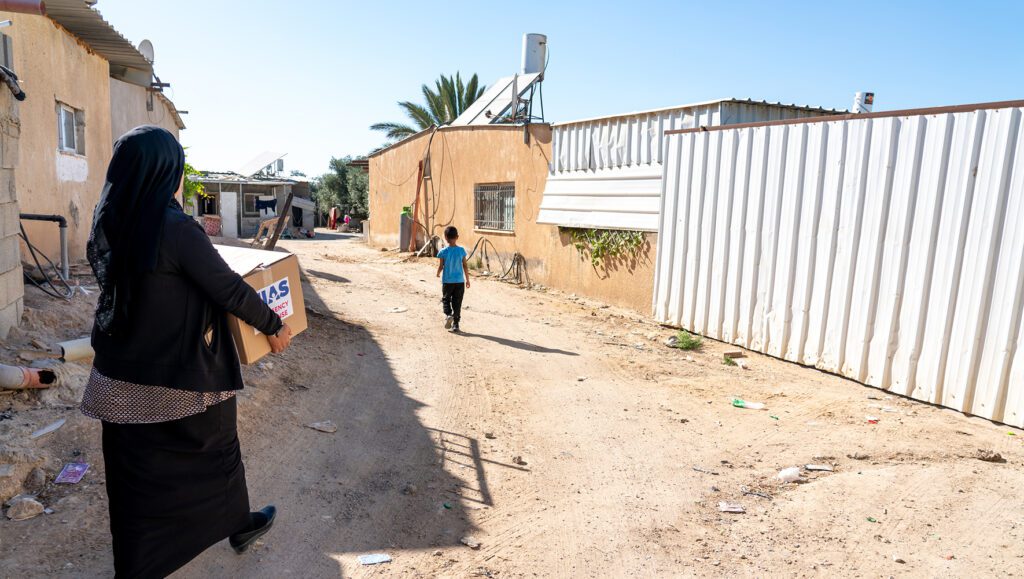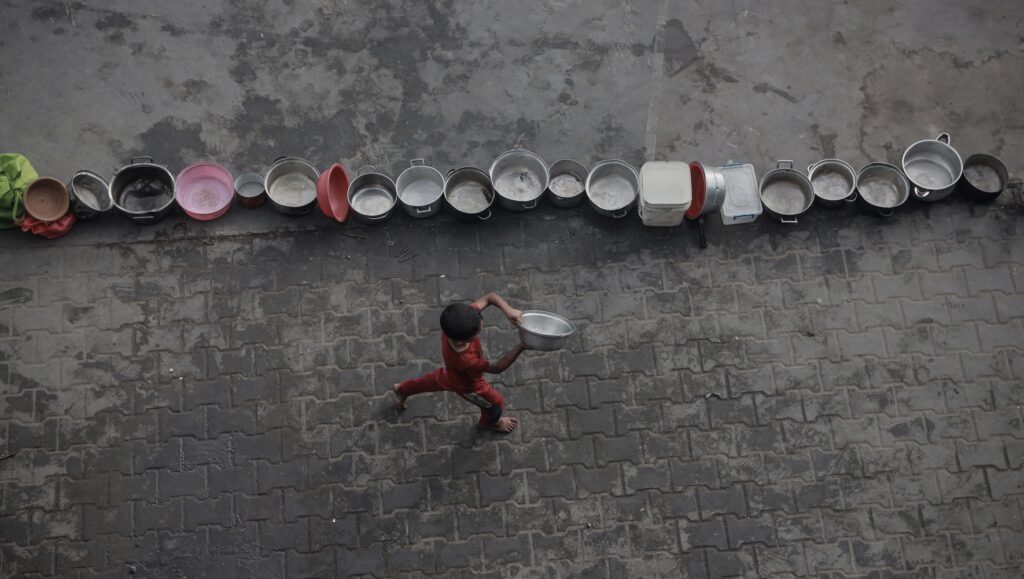
For years, HIAS Israel has been a trailblazer in providing legal assistance to asylum seekers. But when war broke out in Ukraine in February 2022, prompting refugees to arrive in the country, Israeli companies started placing calls to the HIAS office. What can we do to help? And how can we hire them?
Sivan Carmel, HIAS Israel’s country director, appreciated being asked. But the issue was complicated. A rapid-needs assessment confirmed what HIAS Israel knew — a lot of Ukrainians wanted to be employed. In most cases, though, Ukrainians have tourist visas that have to be renewed every month, and a work visa is only good for three months.
“It’s difficult to hire Ukrainians from the perspective of an employer,” Carmel said.
Though new policies have improved their situation somewhat — Israel recently extended the visas of Ukrainian refugees who have been living in Israel since fleeing the war, and eased certain work restrictions on most Ukrainian nationals — many of the more than 14,000 Ukrainians seeking protection in Israel live on aid because they are not able to support themselves.
For HIAS Israel, solving this problem is a big priority. Most refugees want to go home but can’t, said Zoya Levitin, HIAS Israel’s emergency response coordinator. “But we can help them build a home away from home,” she said.
So HIAS began to consider something new: perhaps the refugees themselves could lead the way.
While HIAS had been holding job fairs, providing short trainings, and making presentations to employers, a number of Ukrainian refugee women had meanwhile expressed a desire to get involved to train others within their community. And so in April, together with partners Tech For Changes, the Haifa Volunteers Help Center for Ukrainian Refugees, and Haifa’s Integration Office (Beit Ole), HIAS developed “Building the Community Together” (“Будуймо спільному разом”): a leadership program for women refugees from Ukraine.
So far the program has hosted several meetings, including workshops with qualified professionals who give personal guidance on how to choose a project idea and then develop it. HIAS provides ongoing project support, networking, and ways to access resources, and also supports those participants who want to find better employment opportunities. At the end of the program, there are plans for a festive community event where the women will present their projects.
“The goal of this program is to create a sense of belonging and purpose,” said Lubov Borshevsky, HIAS Israel’s community engagement coordinator. “We want to promote mutual support among women and the development of projects by the community and for the community.”
"The most valuable thing is that you see us as a resource."Nata Rubchinska, leadership program participant
Many of the participants work in physically demanding jobs, but they remain highly motivated. “These women were forced to leave their home because of the war and they found themselves in a foreign country and had to survive in difficult conditions,” Borshevsky explained. “When they come to our meetings, they are full of good energy, motivation, and humor.”
The women in the leadership program have come up with practical applications of their ideas to serve their community’s particular needs. Kateryna Satyr is designing a set of offline lectures for Ukrainian women on important topics for making life in Israel easier (regarding employment, finances, rent, education, etc.) with professional lecturers, real-life examples, discussion, and advice. Olga Volodina would like to organize community meetings around Ukrainian culture and cuisine, music, and art to address the communication and cultural needs of Ukrainian refugees living in Haifa.
Borshevsky’s main task is to work with the community and strengthen it by connecting different organizations and helping refugees find solutions through networking. HIAS intends to attract local stakeholders to participate in the community leaders’ projects and get everyone to the point of actually implementing their ideas.
Many of the refugee women have been in Israel for almost a year and still find life very difficult. They are pleased to be among like-minded people — people who are successful and can help them find their way in a new country.
“I am very grateful to have been invited here,” said Nata Rubchinska, 58, who is from Kyiv and has five children. “For me, the most valuable thing is that you see us as a resource. I think it’s good that I can apply my ideas that were important to me in life here.”
Though many Ukrainians continue to struggle, those in the leadership program appear to have found their way in a country that has not always been very welcoming.
“You feel that you are moving in the right direction, that you are in a community of people who understand and guide you,” said Anna Bozhdanska, a 43-year-old mother of two from Donetsk, who is working on a project to support young people in their new circumstances. “And you move from idea into action.”



